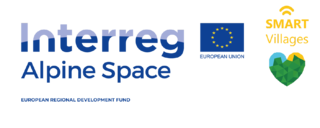demo text
Seroi+
Smart mobility, Smart governance, Smart economy, Smart environment
SEROI+ combines socio-economic and environmental return on investment (SEROI) assessment with open innovation (OI). SEROI+ methodology supports organizations and companies in selecting, developing and designing new products and services that respond to the needs of their communities. The aim of the SEROI+ methodology is to cocreate concrete solutions with high economic, social and environmental impact. There are two options to follow the SEROI+ methodology: you can use the existing online tool, or you can organize the workshop. The following is the description for organization of an on site workshop.
Before meeting
This methodology requires some preparation time, both in the preparation of the contents and in the practical and organizational elements. Firstly, you have to decide on the purpose and the focus of the workshop – what are you going to address. To organize the workshop, you will need an appropriate place.
Meeting execution
In carrying out the workshop you should follow those steps: - Determine your desired goals by asking yourself WHAT (problem opportunity do we want to solve) , WHO (has the problem) , WHY (should the Region solve it), WHERE (is the problem) and WHEN (does the problem need to be solved).- Map your Stakeholders, their influence, relevance, their motivations and orientations. To do this, create two coordinate systems for better visualization: one with relevance on the X-axis and influence on the Y-axis, and the other one with orientation on the X-axis and motivations on the Y-axis. Then map the Stakeholders on both. Influence is a measure of the relative power each stakeholder has on decision-making in the community, and on other local stakeholders. Relevance is a measure of the interest each stakeholder has in the project and its aims as regards the Test Area. Motivations are to be evaluated from intrinsic (enjoyment/interest in taking part in the activities) to extrinsic (material expectations in taking part in the activities). Orientations are to be measured on a scale from self-oriented (the core of decisions from the stakeholder comes from internal sources) to other-oriented (the core of decisions from the stakeholder comes from external sources).- Co-create services: determine the services required for achieving your goal: What’s there? (Which services already exist in your region?), What if? (Recognize unmet needs.), What wows? (Do services have social, economic and environmental value?), What works? (Do users and operators/providers find services useful, usable and efficient?).- Measure the value: determine the impacts of the services and their indicators. Clarify impacts, based on previous work (Which goal should be affected? What are the impacts?).
After meeting
 Village, Town, Municipality
Village, Town, Municipality
 One-time event, 2 - 3 hours
One-time event, 2 - 3 hours
 15 - 20
15 - 20
 Moderator skills required, moderator knowledge required.
Moderator skills required, moderator knowledge required.
 Sector: Universal method
Sector: Universal method
